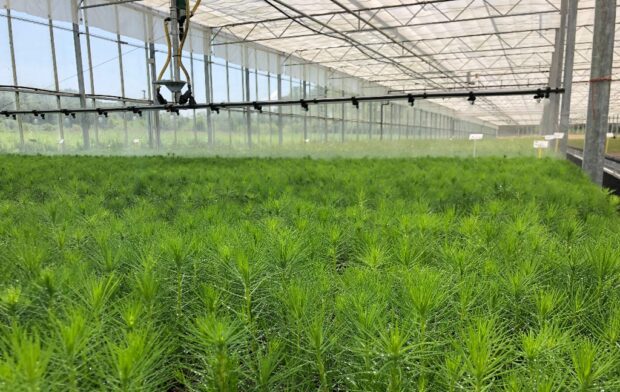
Earlier this year the Tree Production Innovation Fund (TPIF) was launched to support innovative projects that will enhance the quantity, quality and diversity of tree planting stock available for planting in England.
The Forestry Commission have had a fantastic response to the fund, receiving a total of 31 applications including collaborations between researchers, nurseries, seed suppliers and industry. Through the TPIF, over £1million will be made available to support 16 successful projects between October 2021 and March 2022.
Projects will develop innovative technologies and ways of working to overcome current barriers to tree production, addressing one or more of the following three TPIF Challenges:
Challenge 1
How can we make better use of available seed and vegetative planting material to maximise the quantity, quality and diversity of trees produced?
Challenge 2
How can we develop growing systems to enhance their efficiency and resilience to change, whilst delivering improved quality and diversity of product? This challenge can include activities to promote biosecurity.
Challenge 3
How can innovative environmentally sustainable weed control solutions be used to reduce reliance on herbicides?
The successful projects
Future Trees Trust
Establishment of clonal seed orchards for oak, bringing together trees of a superior phenotype to develop Qualified Forest Reproductive Material (FRM) seed sources.
Rhizocore Technologies Ltd
A collaboration with the Cheshire Wildlife Trust investigating the use of locally sourced mycorrhizal fungi to improve the growth, health and resilience of forests.
University Centre Myerscough
Development of a tree nursery water budget tool, using precise nursery water use data to support novel machine learning approaches for irrigation scheduling.
Chestnut Natural Capital Ltd
Development of bio-based weed prevention textiles for improved tree/shrub planting success, soil quality and carbon sequestration.
Maelor Forest Nurseries
Investigating the use of Artificial Intelligence to develop image analysis software for improved productivity in advanced somatic embryogenesis propagation systems.
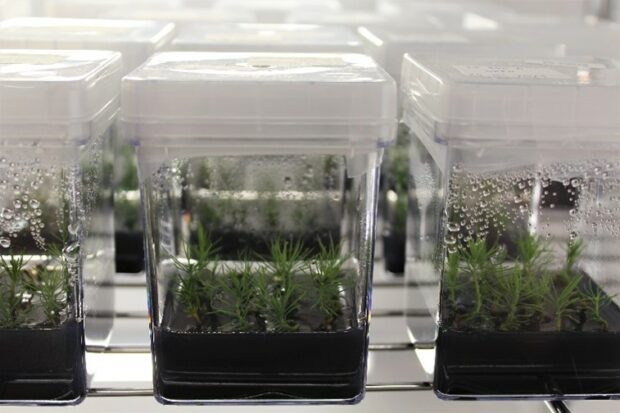
Mark Appleton, Managing Director at Maelor:
The research being done as part of this project is an important and exciting contribution to the nursery’s ongoing activities, but also to tree breeding more widely. It addresses one of the key constraints in the somatic embryogenesis process, namely the labour intensive nature of grading and selecting embryos, thereby improving the quality and affordability of the trees we produce. The funding provided under the TPIF is helping us to build a world-class capability in commercial tree breeding.
RSK ADAS Ltd
A collaboration between RSK ADAS and Forestart exploring the use of cold plasma treatments for seeds to improve germination rates, shorten pre-treatment times and disinfect seeds to maximise productivity.
RBG Kew
A collaboration between RBG Kew, Forestart and Elsoms Seeds seeking to enhance understanding of tree seed traits and their use in the screening, pre-treatment and germination of native tree seed.
University of Nottingham
A collaboration between the University of Nottingham, Whetman Plants International and NIAB-EMR investigating the use of modified cutting propagation techniques on UK broadleaf tree species and novel hormone delivery technologies.
International Plant Propagation Technology Ltd
Development of new propagation containers tailored for use in the UK forestry industry, including hybrid containers suitable for both Ellepot stabilised media and containerised growing.
Intelligent Growth Solutions Ltd
A collaboration between Intelligent Growth Solutions Ltd and Maelor Forest Nurseries investigating the feasibility and optimisation of Total Controlled Environment Agriculture systems to produce year-round forestry seedlings.

David Farquhar, CEO of IGS:
Projects such as this offer opportunities to undertake impactful climate-positive innovation. Our TCEA systems promise the highest quality seedling production, minimising wastage, reducing imports and accelerating reforestation. The forestry sector is evolving rapidly and is at the heart of the hugely exciting drive to tackle climate change, so we are excited about the positive role our systems could play in driving what we all know could be the right outcome.
University of Oxford
A collaboration between the University of Oxford, UK Centre for Ecology and Hydrology, Conifer Breeding Cooperative and Forest Research looking to develop user-friendly DNA finger-printing technologies for traceability of Forest Reproductive Materials (FRM) and verification of pedigree in commercial forestry species.
SilviBio Ltd
An investigation into the use of a moisture-retaining additive to develop peat-free alternatives for cell-grown tree production.
RSK ADAS Ltd
A collaboration between RSK ADAS, Klasmann-Deilmann and Premier Plant Producers Ltd investigating a series of peat free media blends for use in automated containerised tree propagation systems.
SilviBio Ltd
Exploring pelletisation of broadleaf tree seed to facilitate moisture retention, mechanised planting, seedling growth and germination.
Conifer Breeding Cooperative
A collaboration between the Conifer Breeding Cooperative and Forest Research to develop Plus (+)Tree populations and design genetic trials in alternative conifers to diversify and consolidate seed supply, and enable resilience to changing conditions.
SAF Woodland Management
A collaboration between SAF Woodland Management and FERA Science Ltd to produce a microbially rich, scientifically evaluated growing medium, inspired by the growing understanding of the crucial role of beneficial microbial associations for optimal plant health and resilience.
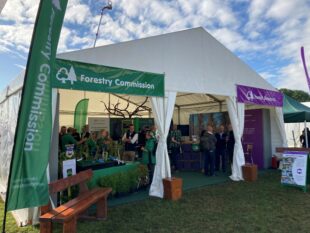
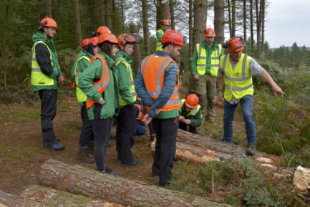
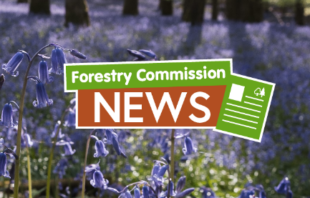
1 comment
Comment by Robert Chard posted on
i want to source very unusual alien hardwood species as seedlings for experimental forestry. Many useful hardwoods which can be grown profitably in UK are not available as forestry selections and the landscape selections which grow well are not suitable and are not for sale at forestry sizes or at forestry prices e.g. Tibetan walnut, Australian sheoak, Hokaido big leaf alder, Hoop pine, . I have a long wish list to grow in Somerset.